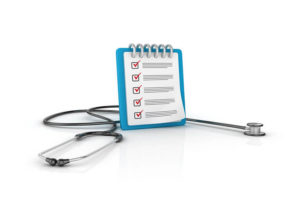Hospitalization Checklist
Hospitals can be frightening even to the bravest patient: A maze of corridors filled with people in “scrubs,” scurrying around and issuing orders just when you are feeling your worst. Here is a checklist to help you get ready and make your hospital visit as comfortable as possible.
| Checklist | |
| Ask your doctor to explain the purpose of your hospitalization and what will happen. | |
| If you are having surgery, ask your surgeon to talk you through it, from anesthesia to the operation to recovery time and the expected outcome. | |
| Ask a family member or friend to come with you and serve as your advocate. | |
| Have legal documents in order, called “advance directives” or “health care directives.” Provide copies to your hospital, doctor, family and advocate. | |
| Make sure that the hospital has your accurate, up-to-date medical records. | |
| Comply with hospital requests for pre-admission tests and paperwork, including health insurance information. | |
| Clarify with your health insurance carrier what is covered and what may not be covered during your stay. | |
| Make sure the hospital provides you with a written copy of your patient rights. | |
| Pack a small bag with essentials, but leave valuables at home. | |
| Do not bring your own medications to the hospital. | |
| Upon admission, verify that your identification band is correct. Do not remove it. | |
| Be sure your chart reflects the drugs you must take regularly, and drug allergies. | |
| Ask questions about new medications: What is this, and why am I taking it? | |
| Limit hugs with visitors in order to minimize germs, and ask hospital staff to wash their hands in your presence. | |
| Before you are discharged, get instructions for post-hospitalization care. | |
| After you are home, call the hospital and/or your doctor if you have unusual or painful after-effects. In an emergency, dial 911. |
Your own questions and notes:



